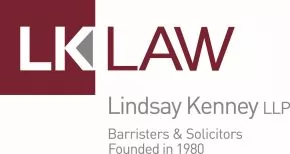SO... someone has named you as an Executor of their Will. What does this mean?
An Executor is someone who is trusted by the Will-maker to, quite literally, execute their wishes according to the terms they set out in their Will.
With this trust comes a package of duties and responsibilities. Before you read the Will's clauses and distribute the Will-maker's assets there are some preliminary steps you need to complete first. Doing things in a different order or doing things in a way inconsistent with the law may expose you to personal liability.
Indeed, depending on the complexity of the Will and the Estate, it can be a lengthy and challenging process from the moment you are named an Executor until you are fully discharged from your role. You should only agree to act as an Executor if you are truly prepared to fulfil all the duties that come with the appointment.
EXECUTOR'S DUTIES
Although each Estate is unique, generally an Executor has to complete the following steps.
- Obtain a death certificate.
- Locate the last Will.
- Dispose of the deceased's remains. The law sets out a hierarchy of who can take control of the disposition, and as an Executor named in the Will, you are at the top of this hierarchy.
- Understand and safeguard the Estate. As an Executor, it is your responsibility to protect the Will-maker's assets. In order to do so, you need to understand what the Will-maker's assets are, where they are located, in what forms they exist, and how you can protect them. You also need to figure out if the Will-maker has any outstanding debts and liabilities that may have to be paid out from the Estate.
- List everyone who may be entitled to benefit from the Estate. Be wary: while this list certainly includes the beneficiaries named in the Will, there may be more people than what meets the eye. Your list should include each person's full legal name, age, guardian (if any), Social Insurance Number, and any other information you may find helpful in dealing with them in the future.
- File a terminal tax return for the Will-maker. Also, for every year following the Will-maker's death, file an estate tax return. Before you distribute the Estate (Step 8), you need to obtain an income tax clearance certificate from the Ministry of Finance.
- Keep proper records for accounting purposes and also for your own reimbursement. Your records should include invoices, receipts and details of the expenses incurred by you when administering the Estate.
- Obtain approval from the beneficiaries and distribute the remainder of the Estate (as known as the "residue" in law) in accordance with the terms of the Will.
- Discharge yourself from Executor's duties.
PROBATE
Probate is a process that verifies a Will's validity under the laws of BC.
As an Executor, you may apply to the court for probate, and if the probate application is successful, you can then apply for the court registry to issue you a grant of probate. The grant of probate is a type of representation grant, which means you have now been granted the authority to act on behalf (i.e., to represent) the Will-maker in dealing with their Estate.
When applying for a grant of probate, you need to deliver notices to certain parties who may benefit from the Estate, so they know that a probate application has been made. You must wait at least 21 days after delivering such notice before you can apply for the grant.
Depending on the size of the Estate, the probate filing fees can be fairly substantial, which have to be paid before the grant is issued. Who is paying these fees? The court registry will provide you with a statement showing the amount of the fees, then the fees can be paid using the funds held in the Will-maker's bank account. Alternatively, you or the beneficiaries under the Will can loan some funds to the Estate to cover the fees. There is no filing fee if the Estate's value is $25,000 or less.
About Mackrell International – Canada - Lindsay Kenney LLP is a full service business law firm with offices in Vancouver and Langley, BC and a member of Mackrell International. Mackrell International – Canada is comprised of four independent law firms in Alberta, British Columbia, Ontario and Quebec. Each firm is regionally based and well-connected in our communities, an advantage shared with our clients. With close relations amongst our Canadian member firms, we are committed to working with clients who have legal needs in multiple jurisdictions within Canada.
This article is intended to be an overview and is for informational purposes only.


